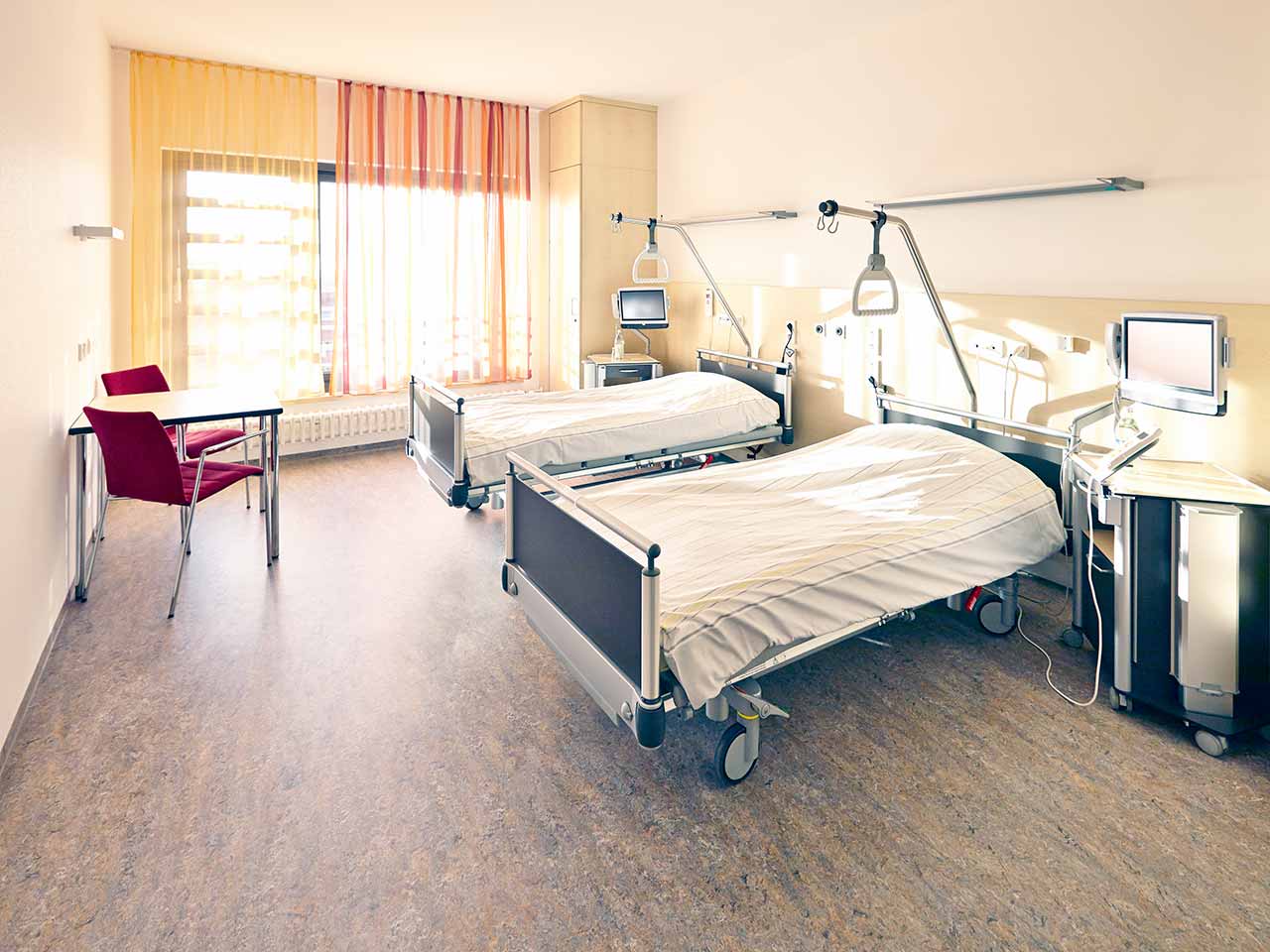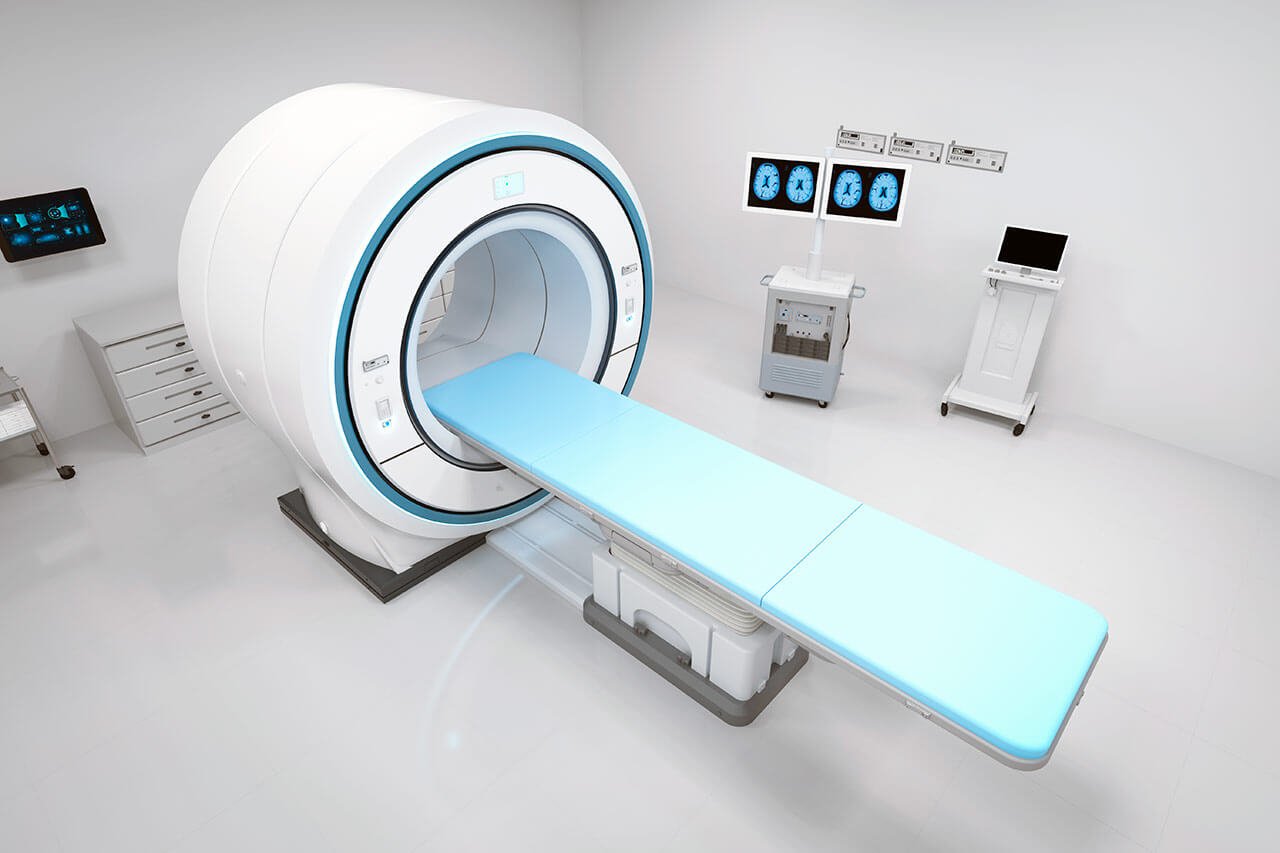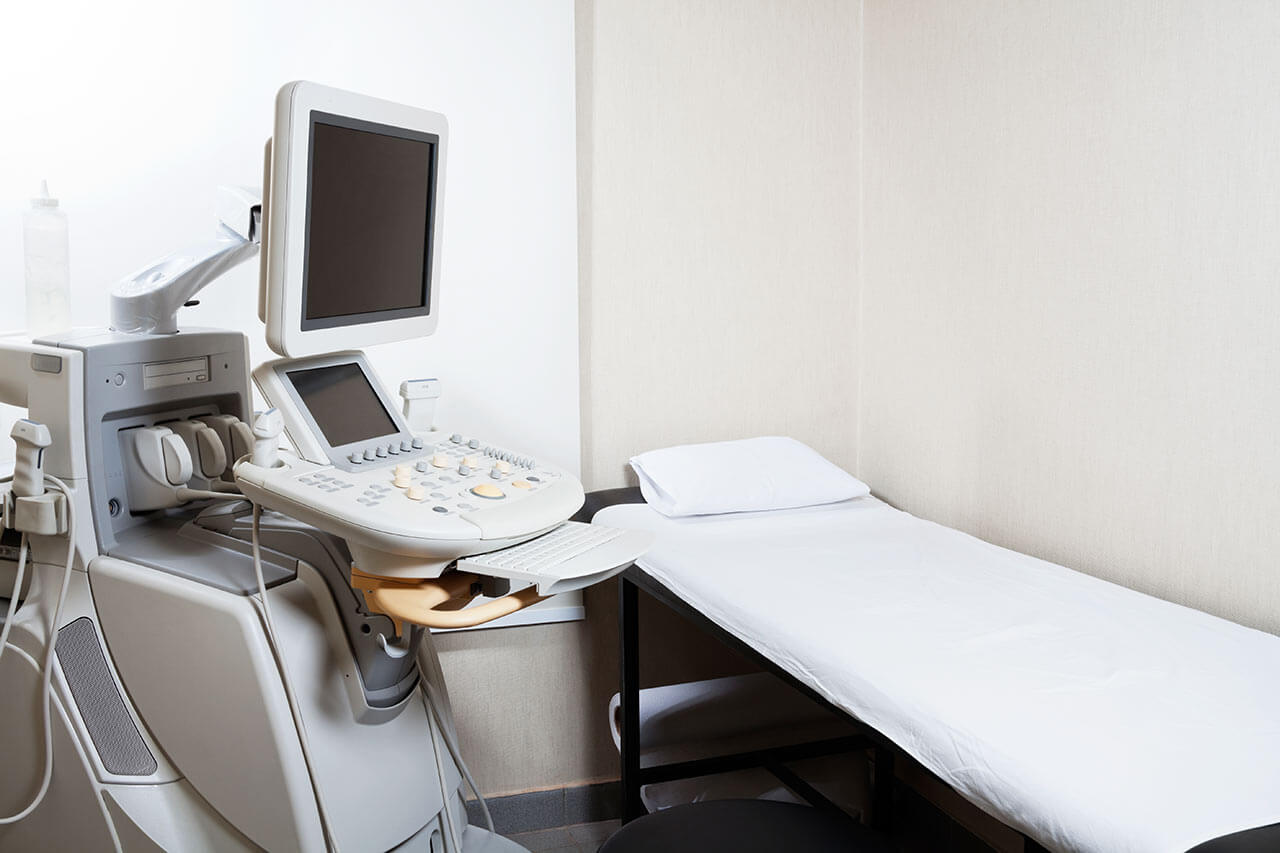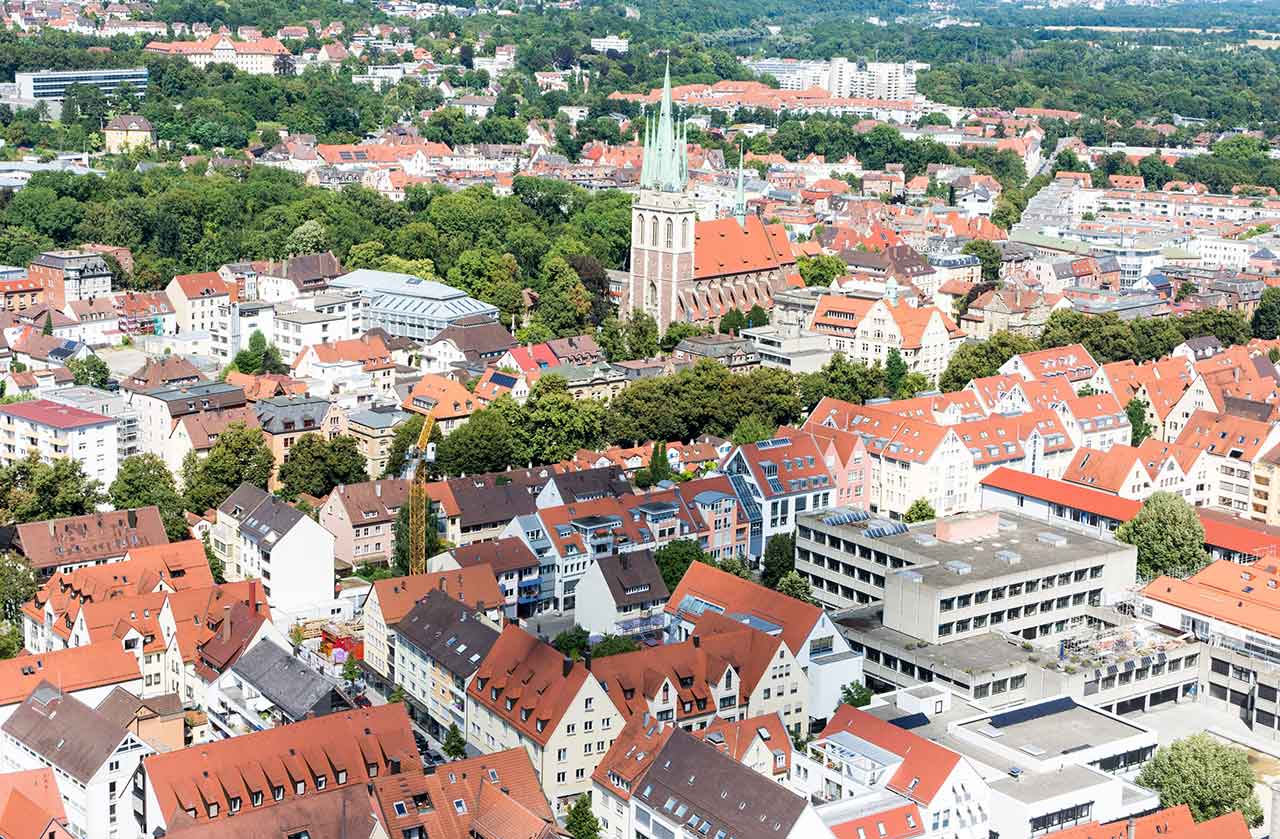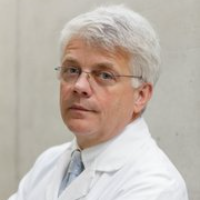
The program includes:
- Initial presentation in the clinic
- clinical history taking
- review of medical records
- physical examination
- laboratory tests:
- complete blood count
- biochemical analysis of blood
- inflammation indicators (CRP, ESR)
- indicators blood coagulation
- TSH-basal
- blood gas analysis
- chest x-ray examination
- measurement of arterial blood pressure
- electrocardiogram (ECG)
- echocardiography (ECHO)
- computed tomography for the planning of radiotherapy
- radiotherapy full course
- nursing services
- consultation of related specialists
- controll examinaation
- explanation of individual treatment plan
Required documents
- Medical records
- MRI/CT scan (not older than 3 months)
- Biopsy results (if available)
Service
You may also book:
 BookingHealth Price from:
BookingHealth Price from:
About the department
The Department of Adult and Pediatric Radiation Therapy at the University Hospital Ulm performs all modern types of radiation therapy for benign and malignant tumors in adults and children. Cancer treatment is the key focus of the department's clinical practice. The department is the largest medical facility specializing in radiation therapy in the region and one of the leading ones in Germany. More than 1,600 patients are treated here every year. In most cases, radiation therapy is performed on an outpatient basis. The health facility has 20 beds for the hospitalization of patients. The department’s specialists work with state-of-the-art equipment, such as the Varian TrueBeam 2.7 linear accelerator with HyperArc technology and multi-blade collimator, the Halcyon Varian linear accelerator, the RayPilot system for stereotactic irradiation of the prostate gland, the Philips Brilliance CT Big Bore scanner, the Varian Eclipse radiation planning system, the Varian Bravos brachytherapy device, the Zeiss INTRABEAM device for intraoperative radiation therapy, and many others. Of particular interest is the treatment of prostate, breast, ovarian, cervical, and bladder cancers, head and neck tumors, and malignant neoplasms in children. The department performs over 100 stereotactic radiation procedures annually for brain and bone metastases, lung cancer, and prostate tumors. The department is an integral part of the Comprehensive Cancer Center Ulm (CCCU), where physicians specializing in the treatment of cancers of various localizations work hand in hand. This collaborative approach allows the doctors from related disciplines to jointly elaborate comprehensive treatment regimens tailored to the individual needs of each patient.
The department is headed by Prof. Dr. med. Thomas Wiegel. He has more than 30 years of successful clinical experience in cancer treatment using radiation therapy. Prof. Wiegel worked for a long time in the Department of Radiation Therapy at the Charite University Hospital Berlin, a world-renowned medical center with an excellent reputation. He has deep knowledge and invaluable experience in performing all modern types of radiation therapy, devotes much of his time to research activities, and regularly speaks at medical conferences in Germany and abroad, happily sharing his experience with colleagues.
Intensity-modulated radiation therapy (IMRT) is one of the most popular types of irradiation. This high-precision method of radiation therapy is most often used to treat prostate, lung, brain, and breast cancer, as well as head and neck tumors. The IMRT technique allows the radiation dose to be optimally distributed throughout the tumor while minimizing the impact on surrounding tissues. During this radiation therapy, the irradiation area is divided into many small segments. Each of them is irradiated separately with varying intensity. High-energy radiation is targeted at the malignant tumor with millimeter precision without affecting adjacent healthy tissue. Such a sparing effect and concentration of radiation on the cancer focus are achieved due to multi-blade collimators built into the linear accelerator.
The department's doctors also carry out volumetric modulated arc therapy (VMAT), which is an advanced method of IMRT radiation therapy. The principle of action of this type of radiation therapy is almost identical to intensity-modulated radiation therapy. The only difference is that it uses a radiation source that rotates around the patient's body. Specialists can thus irradiate the tumor from any angle while delivering a high dose of radiation to the target area extremely quickly (the VMAT procedure takes only 3-5 minutes). During irradiation, the doctor can adjust the intensity and direction of the rays so that nearby healthy tissue is not damaged.
Intraoperative radiation therapy (IORT) is offered to women with breast cancer. The department's radiation therapists have been using this treatment method in collaboration with breast specialists since 2010, so they are deservedly proud of their wealth of experience in this field. The IORT radiation procedure is carried out directly during the tumor removal surgery. A high dose of radiation is directed at the tumor bed immediately after tumor removal. Such an approach allows the doctors to destroy atypical cells remaining after resection. Intraoperative radiation therapy makes it possible to significantly reduce the number of sessions of external beam radiation therapy after surgery and, in some cases, eliminate them completely.
The department's doctors are also competent in brachytherapy. This is an internal method of radiation therapy, during which the source of radiation is placed using a special applicator in close proximity to the tumor or inside it. Due to this, specialists can target the cancer focus with a high dose of radiation without harming healthy adjacent tissues. The department's radiation therapists most often perform intracavitary brachytherapy, during which the radiation source is inserted into the natural body openings to irradiate the tumors located in them. Brachytherapy takes a few minutes and can be performed on an outpatient or day-care basis. Local or general anesthesia may be used during the procedure, if required. The department's specialists provide brachytherapy for tumors of the vagina, uterus, upper esophagus, and respiratory tract.
The medical facility also successfully performs stereotactic radiosurgery, a precise irradiation using a three-dimensional coordinate system. Stereotactic irradiation is indicated for patients with brain tumors and metastases. This method is also used to treat prostate cancer, lung cancer, lung metastases, and solitary bone metastases. During stereotactic radiation therapy, the tumor is exposed to a high dose of radiation in a single session. Sometimes the necessary dose of radiation may be delivered in fractionated sessions over several days.
Since 2019, the department's doctors have been performing stereotactic irradiation of brain tumors using the innovative HyperArc technology. This system makes it possible to significantly reduce the radiation session duration (it lasts only 15 minutes), as well as to perform the simultaneous irradiation of several cancer foci rather than just one tumor, as in classical radiosurgery. More than 50 stereotactic irradiation procedures using HyperArc technology are performed in the department every year.
The department's radiation therapists are also among the pioneers in Germany in the field of stereotactic radiation therapy using the advanced Ray Pilot technology for treating prostate cancer. This treatment method has been successfully performed here since March 2021. When using the Ray Pilot technology, the patient requires only 5 irradiation sessions instead of 30-35, which are carried out every other day. During the treatment period, a catheter with a non-ionizing electromagnetic transmitter is inserted into the urethra to monitor real-time intrafractional movements of the prostate. The data obtained is used to optimize the radiation dose, which allows for a reduction in the duration of irradiation from 7-8 weeks to 5 sessions in 10 days. The effectiveness of stereotactic radiation therapy using the Ray Pilot technology for prostate cancer treatment is comparable to the results of classical radiation therapy.
The department's range of therapeutic services includes the following:
- Intensity-modulated radiation therapy (IMRT)
- Volumetric modulated arc therapy (VMAT)
- Intraoperative radiation therapy (IORT)
- Atemgating irradiation procedure for breast cancer
- Brachytherapy
- Total body irradiation (before a bone marrow transplant)
- Combined radiotherapy and chemotherapy
- Stereotactic radiation therapy, including innovative HyperArc and Ray Pilot technologies
- Other types of radiation therapy
Curriculum vitae
Higher Education and Professional Career
- Since 2005 Head Physician, Department of Adult and Pediatric Radiation Therapy, University Hospital Ulm.
- 2001 - 2005 Professor, Department of Radiation Therapy, Charite University Hospital Berlin.
- 1999 Habilitation and Venia Legendi in Radiation Therapy, Faculty of Human Medicine, Free University of Berlin.
- 1996 - 2005 Managing Senior Physician, Department of Radiation Therapy, Charite University Hospital Berlin.
- 1995 - 1996 Senior Physician, Department of Radiation Therapy, Charite University Hospital Berlin.
- 1994 - 1995 Research Fellow, Department of Radiation Therapy, Charite University Hospital Berlin.
- 1989 - 1994 Intern, Assistant Physician, Department of Radiation Therapy, University Hospital Hamburg.
- 1989 - 1991 Residency, Department of Radiation Therapy, University Hospital Hamburg.
- 1990 Thesis defense.
- 1989 Doctoral degree.
Photo of the doctor: (c) Universitätsklinikum Ulm
About hospital
The University Hospital Ulm is an advanced medical complex that provides patients with high-class medical care using the very latest scientific achievements. The medical facility has been performing successful clinical activities for more than 40 years and has long earned an excellent reputation throughout Europe. The hospital regularly demonstrates high treatment success rates, takes an active part in the training of medical students, and works tirelessly on promising research projects.
The university hospital consists of 29 specialized departments and 16 scientific institutes, where more than 7,000 highly qualified employees work for the benefit of their patients. More than 55,000 inpatients and about 300,000 outpatients are treated here every year. The hospital has 1,274 beds. The medical team of the hospital is focused on providing personalized medical services using the most modern and sparing diagnostic and treatment methods.
The University Hospital Ulm is the largest medical complex in the region, and practically all areas of modern medicine are represented here. Transplantology and oncology are among the priority areas of clinical activity in the medical facility. The hospital holds leading positions in the world in bone marrow transplantation. In addition, the hospital has advanced experience in cancer treatment. The Comprehensive Cancer Center is recognized as the leading facility of this kind in the country, and it is certified by the German Cancer Society (DKG). It provides effective treatment for various types of cancer. The center also offers innovative CAR T-cell therapy. In addition, the Cancer Center is actively engaged in research activities to improve available treatment methods and develop innovative therapeutic techniques to fight cancer.
Along with the use of advanced technologies, doctors show respect, understanding, and a humane attitude toward the patient. The medical team includes competent psychologists, who are always ready to provide assistance and support to the patients and their families during the therapeutic process.
Photo: (с) depositphotos
Accommodation in hospital
Patients rooms
The patients of the University Hospital Ulm live in comfortable single and double rooms with a modern design and light colors. All patient rooms have an ensuite bathroom with a toilet and a shower. The patient room furnishings include a comfortable automatically adjustable bed, a bedside table, a wardrobe, a table and chairs, a telephone, a radio, and a TV. Wi-Fi access is also available in patient rooms.
The hospital also offers enhanced-comfort rooms, which additionally have a safe, a refrigerator, and upholstered furniture. The bathroom in the enhanced-comfort room has changeable towels, a cosmetic mirror, a hairdryer, and toiletries.
Meals and Menus
Patients and their accompanying person are offered three meals a day: breakfast, lunch, and dinner. The patient and accompanying person have a choice of three menus every day, including a vegetarian menu. Patients staying in the enhanced-comfort rooms are also offered light snacks, fruits, desserts, and hot and cold drinks in the comfortable lounge area.
If, for some reason, you do not eat all the foods, you will be offered an individual menu. Please inform the medical staff about your dietary preferences prior to treatment.
Further details
Standard rooms include:
![]() Shower
Shower
![]() Toilet
Toilet
![]() Wi-Fi
Wi-Fi
![]() TV
TV
Religion
The hospital has a chapel where Catholic and Protestant services are held weekly. The services are also broadcast on the internal television channel of the hospital. The chapel is open 24 hours a day for visits and prayers.
The services of other religious representatives are available upon request.
Accompanying person
Your accompanying person may stay with you in your patient room or at the hotel of your choice during the inpatient program.
Hotel
You may stay at the hotel of your choice during the outpatient program. Our managers will support you for selecting the best option.
